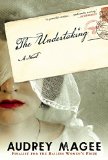Summary | Excerpt | Reading Guide | Reviews | Beyond the book | Read-Alikes | Genres & Themes | Author Bio

A Novel
by Helen DunmoreHelen Dunmore's gripping novel meets Anna and Andrei, protagonists of her earlier, critically acclaimed novel The Siege (2001), as they endeavor to create a normal life in 1950s Leningrad. (Note: while reading The Siege may be useful for getting background information, it's certainly not necessary; The Betrayal stands very well on its own.) The siege is over, the newly planted trees have begun to bloom around the city, and Anna and Andrei are fiercely committed to living a calm, predictable life. The all-encompassing organs of the Soviet state, however, make living a quiet life challenging. The terrors of life under the siege - little food, daily threats from the invading Germans, the imminence of death - have given way to a more benign terror, the gripping power of the authoritarian Soviet state. Though life is not as horrible as it was during the Great Purge of the late 1930s, the threat of disappearance lingers, and people live in fear. The danger of being denounced by a friend or neighbor is a daily reality, but Anna and Andrei live quietly, keep their mouths shut, and count their blessings. They are good people, the type who inspire respect, but no one in Soviet Russia is safe, not even people like Anna and Andrei.
At the heart of Dunmore's investigation of life in an oppressive culture lies the question: can a person stay ordinary and good at the same time? Anna and Andrei watch neighbors - friends - change into monsters as they remain quiet during public denouncements and speak out against other friends. On the one hand, it is understandable: everyone wants to save his or her own skin. On the other hand however, as the novel queries: if everyone were to stand up to the state, wouldn't it have to eventually back down? The idea of living an ordinary life slowly changes from what we expect it to mean - being respectable, responsible, and rooted in a close community - to existing in secrecy, isolation, and dangerous, silent complicity. It becomes increasingly clear to Anna and Andrei that in order to maintain day-to-day life one must ignore injustice, appear to support terror, and stay quiet. Both Anna and Andrei fight this slow metastasizing of their decent selves, but the forces are insidious. Ultimately, their very desire to maintain their humanity leads them into the snare.
Embedded in their struggle to lead a regular life is the notion of betrayal, a theme the novel repeatedly contemplates. What are these characters disloyal to when they are loyal to something else? What aspects of their lives are they forced to betray as a result of the intrusive state? As Andrei's medical ethics are put to the test over the treatment of a sick son of a high-ranking Party member, the implicit question is not whether or not he can be helpful to the boy, but whether his decision to provide the child with medical aid will affect his own family. This is a terrifying, unjust predicament, and observing Andrei's struggle throws into sharp relief the perils of living under Stalin's regime. Dunmore's brilliance lies in her ability to pare down the sweeping drama of Soviet Russia into small, clear descriptions of how average families are affected by societal forces. The reader is brought inside Anna and Andrei's relationship and made to feel the stresses, joys, fears that they feel.
Soviet Russia is a popular setting for historical novels, as many recent notable books such as Russian Winter and Sashenka can attest, but The Betrayal takes this genre to the next level. It is often difficult to find novels of this kind that place character and theme before the historical setting; usually they are preoccupied with creating the verisimilitude that readers crave and suppress the delicate exploration of nuanced character development. Dunmore does the opposite. Because her characters are so expertly drawn, the dialogue so believable, and the conflicts so intriguing, the historical setting paints itself. There is no extraneous description, no heavy-handed narrator forcing the reader to see the scene. The reader is simply in 1950s Leningrad, struggling with Anna and Andrei. Dunmore's ability to integrate the reader so seamlessly into her narrative is masterful.
This is a powerful novel, one that has stuck in my mind since I finished reading it. The Betrayal is perfect for book clubs and is sure to be a favorite with people who enjoy historical or literary fiction.
![]() This review
first ran in the November 3, 2011
issue of BookBrowse Recommends.
This review
first ran in the November 3, 2011
issue of BookBrowse Recommends.

If you liked The Betrayal, try these:

by Audrey Magee
Published 2015
A much-anticipated debut from a remarkable new talent in Irish fiction—a terrifyingly intimate story of a war marriage caught up in the calamity of World War II

by Tom Rob Smith
Published 2010
Former state security officer Leo Demidov is struggling to change as the Soviet Union changes around him. The two young girls he adopted have yet to forgive him for his part in the death of their parents, and they are not alone; now that the truth is out, Leo and his family are in grave danger from someone consumed by the dark legacy of Leo's past...
Your guide toexceptional books
BookBrowse seeks out and recommends the best in contemporary fiction and nonfiction—books that not only engage and entertain but also deepen our understanding of ourselves and the world around us.